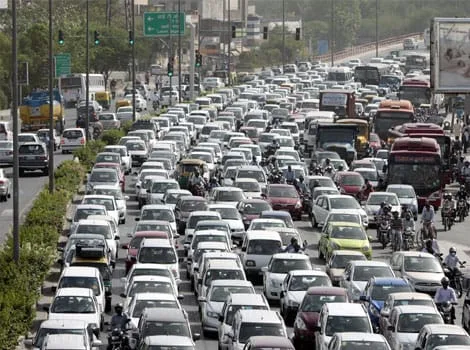
Last Updated on July 3, 2025 11:47 am by BIZNAMA NEWS
AMN / New Delhi
In a significant policy reversal, the Delhi government has decided to postpone enforcement of the proposed ban on fueling 10-year-old diesel and 15-year-old petrol vehicles in the capital. The ban, which was to take effect from July 1, 2025, under Direction No. 89 issued by the Commission for Air Quality Management (CAQM), has now been put on hold. The government has formally requested CAQM to suspend the order, calling its implementation premature and impractical at this stage.
What Did the Government Say?
Delhi Environment Minister Mr. Manjinder Singh Sirsa stated that while the government remains committed to improving air quality, it cannot compromise the day-to-day needs of citizens.
“We will not allow environmental degradation in Delhi, nor will we permit the seizure of citizens’ vehicles,” said Mr. Sirsa.
Technical Setbacks: ANPR System Not Ready
The Delhi government cited the Automated Number Plate Recognition (ANPR) system’s technical limitations as a major obstacle:
- Several cameras and speakers are non-functional.
- There is no integration with vehicle databases of neighboring states like Gurugram, Faridabad, and Ghaziabad.
- The system fails to identify End-of-Life (EOL) vehicles lacking High-Security Registration Plates (HSRP).
Concerns with Partial Enforcement:
- Lack of NCR Coordination: Since many adjoining districts have not yet installed ANPR systems, people could bypass the ban by refueling in those areas—rendering the policy ineffective.
- Potential for Illegal Fuel Markets: Selective enforcement in Delhi could lead to the growth of black-market fuel sales in surrounding NCR regions.
Call for a Phased and Unified Rollout
The Delhi government urged that enforcement of such bans should only happen after ANPR technology is uniformly implemented across the entire NCR. Until then, postponement is the only rational option, they argued.
Alternative Measures Underway
The government also outlined several initiatives already being pursued to combat pollution:
- Planting 7 million trees and plants across Delhi
- Stricter policy for Pollution Under Control (PUC) certification
- Mandatory anti-smog guns in high-rise buildings
- Pilot projects using cloud seeding to induce rainfall
- Mechanized road sweeping (MRS) and construction dust monitoring
- Planned SMS alerts for EOL vehicle owners
Judicial Context: Supreme Court and NGT Rulings
The move to restrict older vehicles stems from prior court directives. In 2018, the Supreme Court banned diesel vehicles older than 10 years and petrol vehicles older than 15 years in Delhi. A 2014 National Green Tribunal (NGT) order had also prohibited parking of 15+ year-old vehicles in public spaces.
Conclusion
While reiterating its commitment to clean air, the Delhi government argued that enforcing Direction No. 89 without adequate infrastructure would lead to confusion and poor outcomes. Until a coordinated regional approach backed by functioning ANPR systems is in place, the government has asked CAQM to defer the ban. The ball is now in the Commission’s court as policymakers weigh health priorities against operational readiness.






